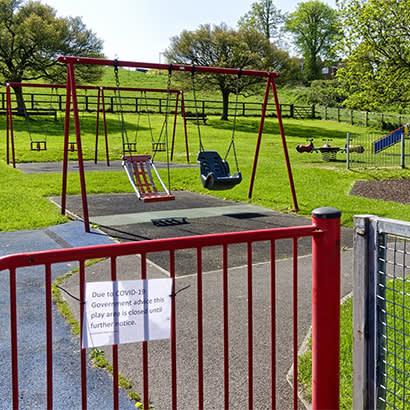
For an enhanced digital experience, read this story in the ezine.
The damage the coronavirus (COVID-19) pandemic has wreaked on park and recreation budgets is startling. Park and recreation professionals and their agencies have reaffirmed their essential nature throughout the public health crisis. Public parks, trails and other open spaces provided millions of people countless opportunities to improve one’s physical and mental health every day, often serving as the sole remaining respite as other services and businesses shut down. The list of different ways parks and recreation has served the public is immeasurable.
Yet even in the face of record-setting usage, many park and recreation agencies are facing their greatest budget crisis ever. Two-thirds of park and recreation leaders responding to a late-June NRPA Parks Snapshot Survey say they were slashing their operations budgets. The typical operations budget cut ranged between 10 and 19 percent from original levels, with 1 in 6 agencies reporting cuts of at least 30 percent. Similarly, 3 in 5 agency leaders say they slashed capital expenditures, with typical reductions of at least half of original budgeted levels.
Unfortunately, this is not surprising. According to the 2020 NRPA Agency Performance Review, the typical park and recreation agency recovers more than a quarter of its annual operating budget through registration and entry fees, rental income, sponsorships, concessions and other earned revenues. At best, these revenues are challenged in a pandemic world, but for many agencies, these revenues are simply nonexistent.
Also weighing heavily on park and recreation agency budgets has been the steep decline in local and state government tax revenues. The 2020 NRPA Agency Performance Review finds more than 70 percent of operating funds at the typical agency comes from a combination of general fund and dedicated tax support.
The National League of Cities (NLC) City Fiscal Conditions 2020 report paints a bleak picture of the damage suffered by cities’ major revenue streams in just the first few months of the pandemic. NLC estimates sales tax revenue plummeted 10.9 percent in fiscal year 2020, as retailers and restaurants shut down or reduced operations during the spring and early summer. The sharp rise in unemployment resulted in a 3.4 percent drop in income tax revenue. Property tax revenues held firm, rising 1.9 percent for the year. (Because of the property assessment process, it can take several years before a recession detrimentally affects property tax revenues.)
Even worse, city finance leaders are pessimistic for the future. Eighty-seven percent of city finance officers indicate that their government will be less able to meet their 2021 fiscal year financial needs than they were in 2020.
Respondents to the NLC survey anticipate that general fund revenues will decline 13 percent during fiscal year 2021. This is particularly noteworthy, as revenue bottomed out six years after the 2007 start of the Great Recession and was “only” off 12 percent from pre-recession levels. Even more worrisome is that we do not know when the bottom of this financial crisis will occur, meaning local governments may face further fiscal challenges in the coming years.
Even as local government revenues continue to fall, the demand for their services rises in response to both the pandemic and the recession. The fiscal stress experienced by most cities, towns and counties will only expand in the coming years and will result in even greater competition among government services for funding.
But one thing is clear: the public wants high-quality parks and recreation and is willing to pay for it. NRPA’s Park Pulse poll finds that two-thirds of U.S. adults support their local government dedicating revenues, taxes and levies that specifically target park and recreation operations and expansion projects. It is critical to share your team’s incredible contributions to every political leader, funder, stakeholder, media member and indvidual in the general public to ensure you will be there for them tomorrow.
Kevin Roth is Vice President of Research, Evaluation and Technology at NRPA.


